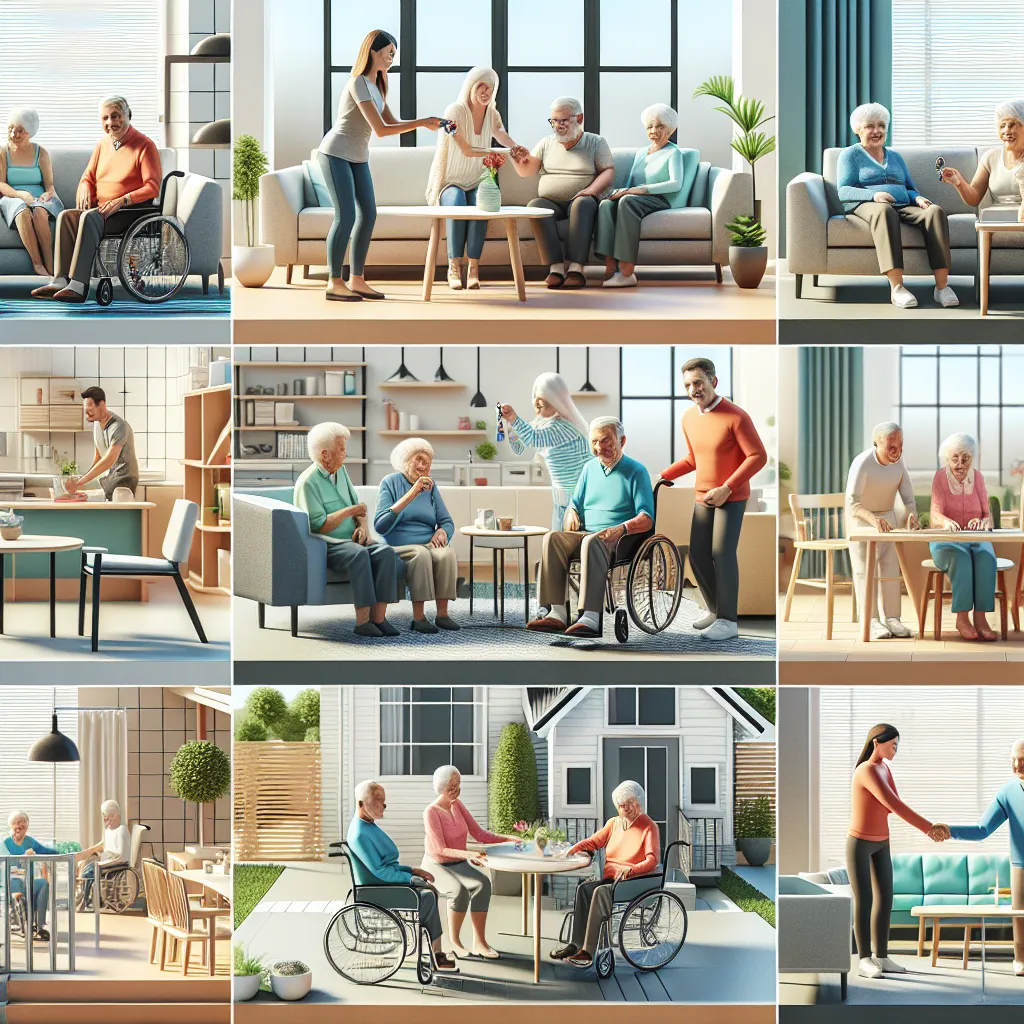Affordable Apartments for Seniors Based on Income
Affordable Apartments for Seniors Based on Income
As the population continues to age, finding suitable and affordable housing options for seniors becomes increasingly important. For many older adults, living on a fixed income can make it challenging to secure comfortable accommodation. However, there are various programs and options available that offer affordable apartments for seniors based on income.

1. HUD’s Section 202 Supportive Housing for the Elderly Program
The U.S. Department of Housing and Urban Development (HUD) provides the Section 202 Supportive Housing for the Elderly Program. This program offers subsidized housing to low-income seniors aged 62 and above. Apartments under this program are specifically designed to meet the unique needs of older adults, including accessibility features such as grab bars, ramps, and wider doorways.
Under Section 202, eligible seniors pay approximately 30% of their income towards rent, with the remaining amount covered by HUD subsidies. This ensures that seniors with limited financial resources can access safe and affordable housing options.
2. Low-Income Housing Tax Credit (LIHTC) Program
The Low-Income Housing Tax Credit (LIHTC) Program is another initiative that provides affordable housing for seniors based on income. This program offers tax credits to developers who build or renovate affordable rental units for low-income individuals, including seniors.
Through LIHTC, developers receive tax credits that they can sell to investors to finance the construction or renovation of affordable housing. In return, they must allocate a certain percentage of the units to seniors with limited incomes. These units are then rented out at reduced rates, making them an affordable housing option for seniors.
3. Section 8 Housing Choice Voucher Program
The Section 8 Housing Choice Voucher Program is a federal assistance program that helps low-income families, including seniors, afford safe and decent housing in the private market. Under this program, eligible seniors receive a voucher that they can use to rent an apartment from a private landlord who participates in the program.
The amount of rental assistance provided through the voucher is based on the senior’s income and the local housing market. Seniors are typically required to contribute 30% of their income towards rent, with the remaining amount covered by the voucher. This program offers flexibility as seniors can choose their own apartment and are not limited to subsidized housing complexes.
4. Non-Profit Organizations and Community Development Corporations
Several non-profit organizations and community development corporations (CDCs) also offer affordable apartments for seniors based on income. These organizations work towards creating affordable housing options for low-income individuals, including seniors, within their communities.
Non-profit organizations and CDCs often partner with local government agencies, private developers, and financial institutions to develop affordable housing projects. These projects typically offer a range of housing options, including apartments specifically designed for seniors. By working with these organizations, seniors can access affordable housing options that meet their needs and income requirements.
5. State and Local Government Programs
Many state and local governments have their own programs in place to provide affordable apartments for seniors based on income. These programs vary by location, but they often include subsidies, tax incentives, or partnerships with developers to create affordable housing units.
Seniors can inquire with their local housing authority or department of housing to learn about the available programs in their area. These government initiatives aim to address the housing needs of seniors and ensure that they have access to affordable and suitable accommodation options.
Conclusion
Affordable apartments for seniors based on income play a crucial role in ensuring that older adults can age in a safe and comfortable environment. Programs such as HUD’s Section 202, LIHTC, Section 8, non-profit organizations, and state and local government initiatives all contribute to providing housing options that are affordable and accessible for seniors with limited incomes.
Seniors and their families should explore these options and connect with local resources to determine the best fit for their specific needs and circumstances. With the availability of these programs, seniors can find housing solutions that support their well-being and allow them to maintain their independence as they age.
